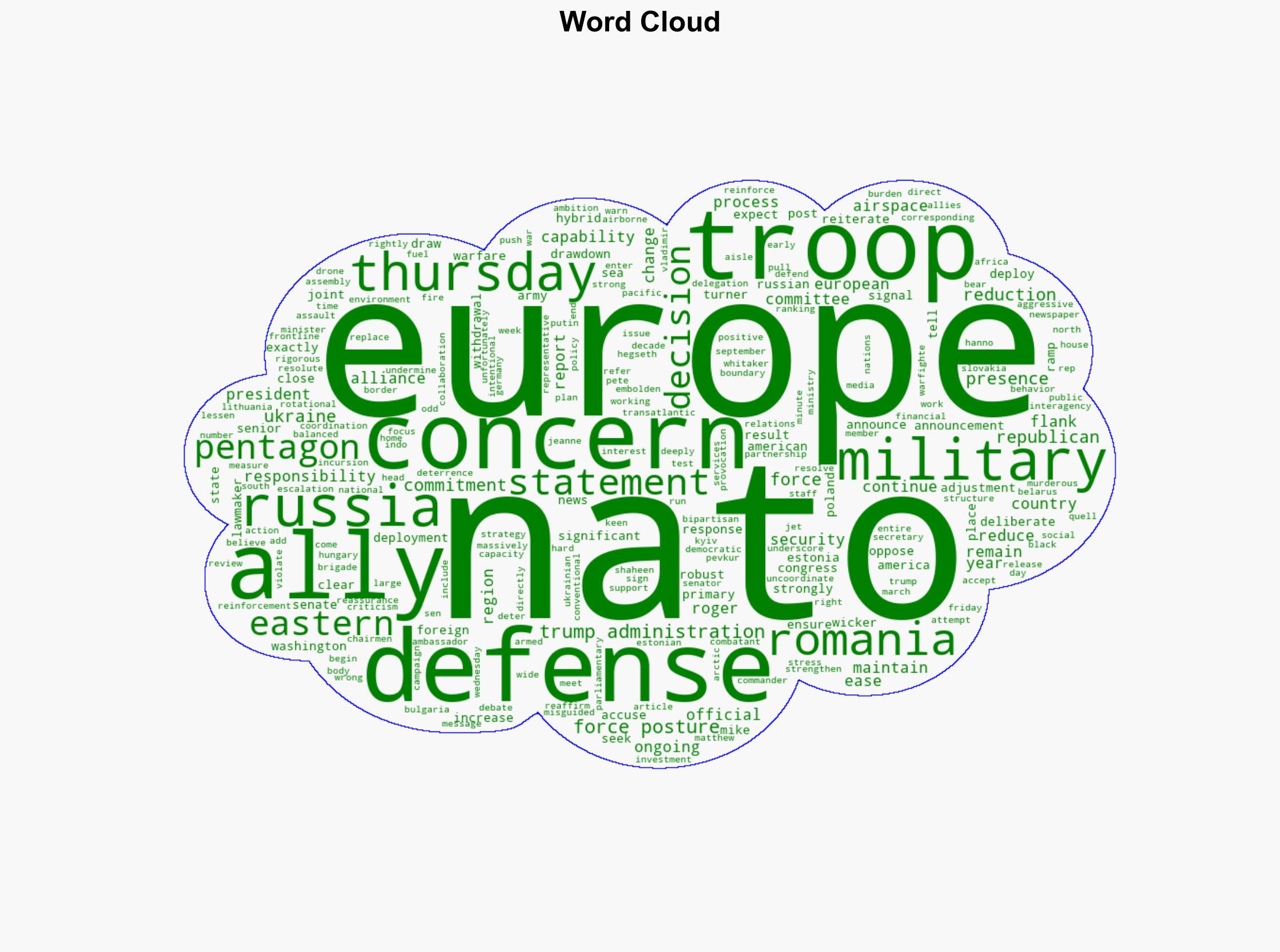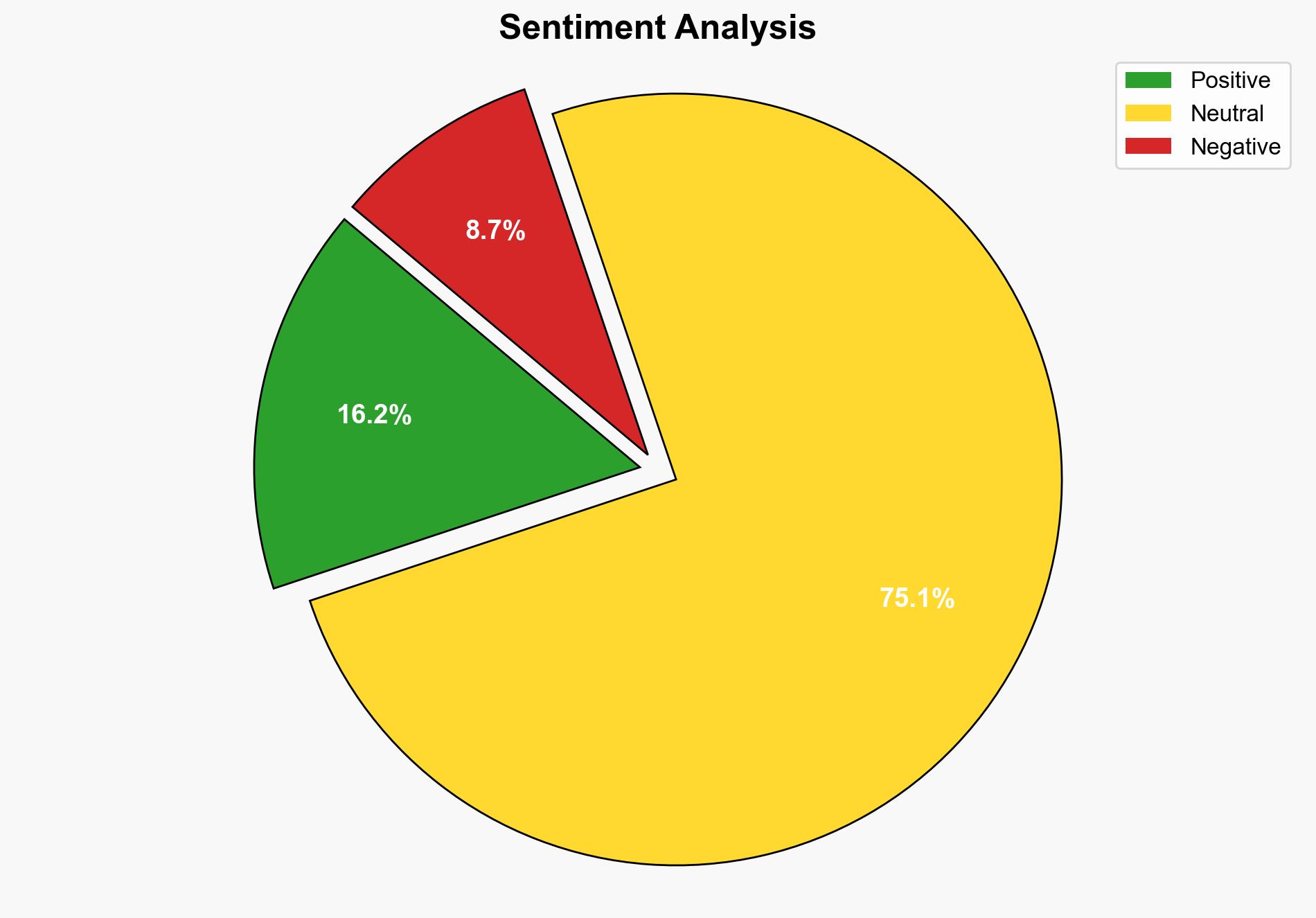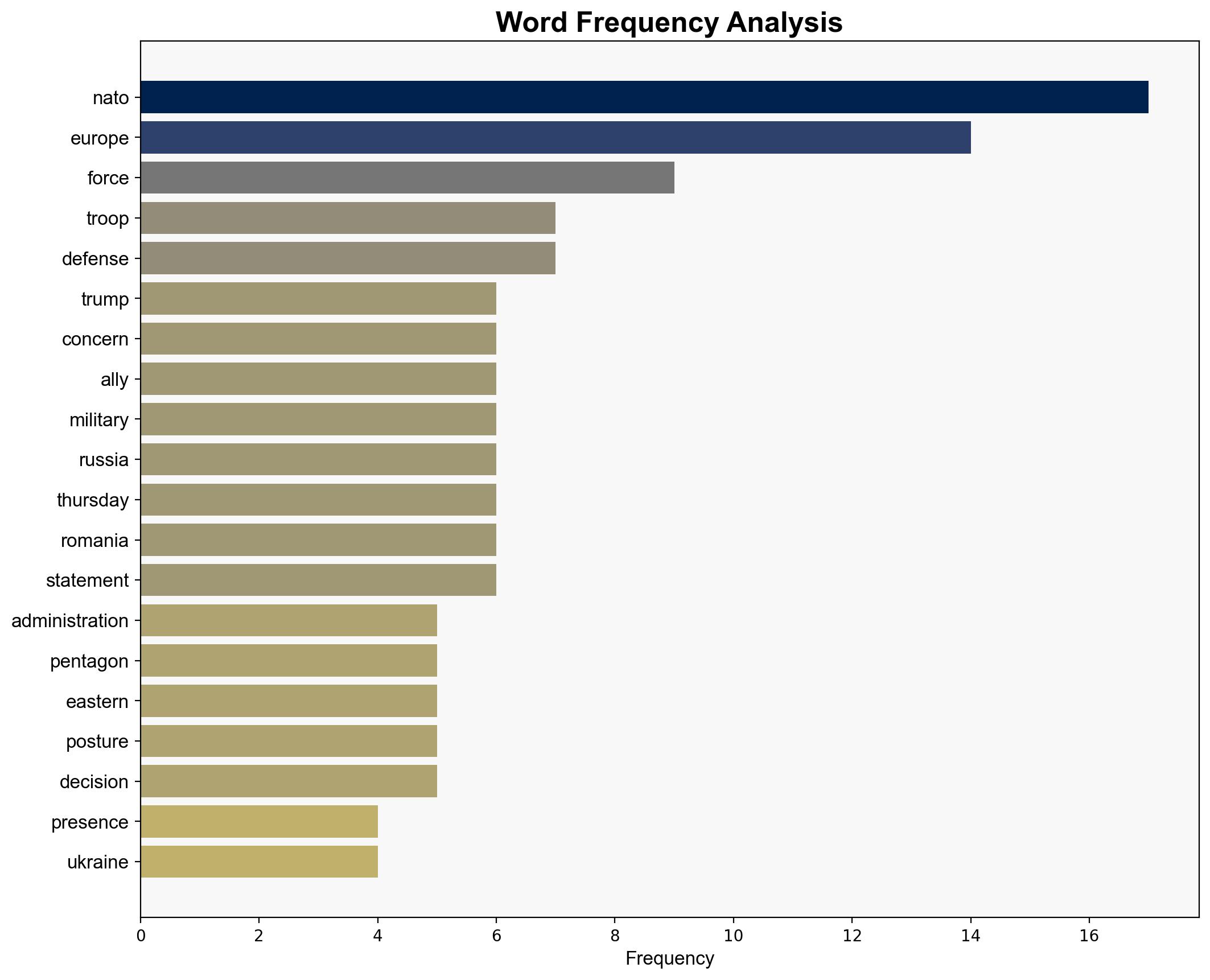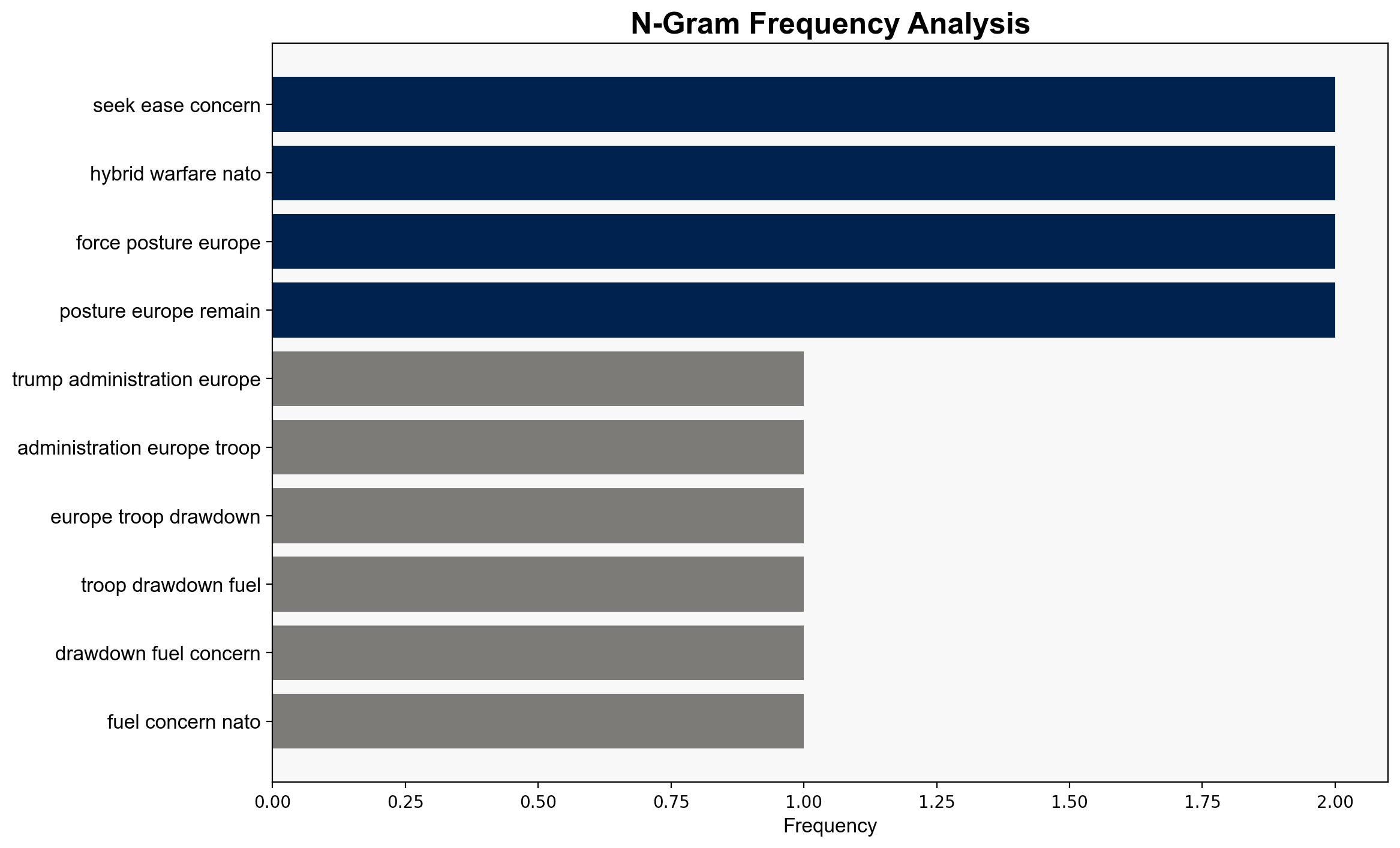US troop drawdown in eastern Europe brings anxiety and GOP rebuke – CBS News
Published on: 2025-10-31
Intelligence Report: US troop drawdown in eastern Europe brings anxiety and GOP rebuke – CBS News
1. BLUF (Bottom Line Up Front)
The strategic judgment suggests that the US troop drawdown in Eastern Europe is likely a strategic recalibration rather than a reduction in commitment to NATO. This hypothesis is better supported by the evidence, with a moderate confidence level. The recommended action is to enhance diplomatic engagement with NATO allies to reassure them of continued US commitment and to monitor Russian activities closely for any opportunistic actions.
2. Competing Hypotheses
1. **Strategic Recalibration Hypothesis**: The troop drawdown is part of a deliberate strategy to recalibrate US military presence in Europe, focusing on enhancing European NATO allies’ capabilities and shifting attention to the Indo-Pacific region.
2. **Reduction of Commitment Hypothesis**: The drawdown signals a reduction in US commitment to NATO, potentially emboldening Russian aggression and undermining the alliance’s deterrence posture.
Using ACH 2.0, the Strategic Recalibration Hypothesis is better supported by evidence such as statements from US officials emphasizing continued commitment to NATO and increased European capabilities. The Reduction of Commitment Hypothesis is less supported due to the lack of direct evidence indicating a strategic shift away from NATO.
3. Key Assumptions and Red Flags
– **Assumptions**: The Strategic Recalibration Hypothesis assumes that European NATO allies can effectively enhance their defense capabilities. The Reduction of Commitment Hypothesis assumes that troop numbers directly correlate with commitment levels.
– **Red Flags**: Potential cognitive bias includes confirmation bias towards viewing troop reductions as negative. Inconsistent data includes varying interpretations of US statements by different NATO members.
4. Implications and Strategic Risks
The troop drawdown could lead to increased Russian opportunism, testing NATO’s resolve. Economically, European nations may need to increase defense spending. Geopolitically, this shift could alter power dynamics within NATO. Psychologically, it may affect the morale of Eastern European allies. Cyber threats could increase as Russia tests NATO’s cyber defenses.
5. Recommendations and Outlook
- Enhance diplomatic efforts to reassure NATO allies of US commitment.
- Monitor Russian military activities and cyber operations closely.
- Encourage European NATO members to expedite defense capability enhancements.
- Scenario Projections:
- Best: Successful recalibration with strengthened NATO capabilities.
- Worst: Increased Russian aggression and weakened NATO cohesion.
- Most Likely: Gradual adaptation by NATO with moderate Russian probing.
6. Key Individuals and Entities
– Pete Hegseth
– Hanno Pevkur
– Matthew Whitaker
– Roger Wicker
– Mike Rogers
7. Thematic Tags
national security threats, cybersecurity, counter-terrorism, regional focus





